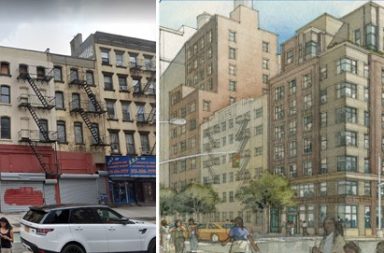New Yorkers are going to pay more in property taxes starting in July.
The city’s Finance Department has released the tentative assessments and property values for the next fiscal year — and both rose over 8 percent.
The tentative full market value (FMV) of all properties grew 8.74 percent, to $1.157 trillion, while the tentative billable assessments rose 8.45 percent, to $226.248 billion.
The General Motors Building at 767 Fifth retained its spot as the most valuable city building, at $1.83 million, up 7.4 percent. Its billable assessment — 45 percent of the FMV — rose 6.84 percent.
But others had billables rise even more. Nearby, Solow’s 9 W. 57 St. went up 11.57, percent while the Empire State Building went up 12.85 percent.
As I’ve said in the past: For all of those who complained about One57 getting a tax break, those bleed off fast. This year’s billable rose by 26.49 percent. The newly renovated Beekman Tower leaped by 92 percent while, downtown, Four Seasons Hotel & Residences increased by 45.65 percent.
Income from rents at Stuyvesant Town and Peter Cooper Village must be rising because their billables were increased 11.08 percent, to $526.5 million, and 8.47 percent, to $162.12 million, respectively. Together, their FMV comes to $1.82 billion and — as usual for city FMVs — is below what they are worth on the actual market.
According to Finance Commissioner Jacques Jiha, Brooklyn’s homes had the highest increase in market value, by 13.77 percent, and Manhattan’s had the greatest increase in assessed value, up 4.79 percent.
Homeowners can file a protest of their tentative assessments until March 15, while other property owners have until March 1. Events will be held in each borough during February to answer questions. The values will be fixed in late May, and the City Council will then set tax rates.
One gloomy statistic, however, is that the number of one- to three-family homes rose only .03 percent, by 380 units, while the number of apartment units rose by just 28,220, likely due to the year-long lack of a 421a tax abatement program that may be headed for a resolution.
“We need a new plan to encourage building affordable housing so that [low-income] and middle class New Yorkers can continue to live in the city,” said Mark Weprin, who joined Greenberg Traurig on Tuesday.
Weprin, a former NYC City Councilman and State Assemblyman, was most recently deputy secretary of legislative affairs for Gov. Cuomo. Weprin left that post on Friday for the law firm.









